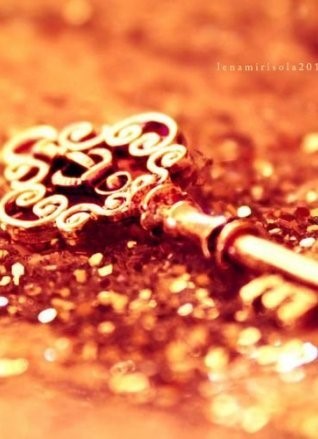Keys
A key is a common unlocking tool in people's life. The materials used for making the key are mainly copper, zinc, aluminum, iron and other metals. The key was invented later than the lock, which appeared in ancient Egypt 4,000 years ago. There are many types of keys, including ordinary keys, smart keys, remote keys, electronic keys and so on.
Keys are people's daily necessities, and as time goes on, the daily necessities of the past have evolved into collectibles. The keys are mainly made of copper, but there are also other metals, which can be described as varied and can be roughly divided into the following categories:
Ring keys
The ancient Romans wore robes, and they were not allowed to make pockets according to the customs of the time. In order to prevent the key from being lost when they go out, a ring key is made; the key is worn on the finger like a ring after going out, which is both safe and beautiful.
Honeymoon keys
More than 100 years ago, many hotels in the United States were equipped with a special key, called the honeymoon key, which was specially prepared for honeymoon newlyweds. The couple must insert their respective keys into the lock at the same time, so that the door can be opened.

Electricity saving keys
Tourism in Singapore is booming, and hotels consume astonishing amounts of electricity. Experts have created an electricity saving key that links the power on and off in guest rooms with the use of customer keys. When the guest leaves the room, locks the door, and pulls out the key, the power saving device starts to work, which greatly reduces the power consumption of the hotel industry.
Window lock keys
The earliest surviving key in China is a casting bronze key from the Tang Dynasty (AD 731). Its shape is similar to the ancient Chinese pane, which is called the window lock by the collectors.
Golden keys
In a small museum on the island of Elba, there is one of the most valuable keys in the world. It was a small gold key that Napoleon gave to his beloved wife Josephine. Someone offered to buy it for $20,000, but was rejected.
City golden keys
If the golden key of a city is given to the visitor, it is a very utmost courtesy, which symbolizes friendship and trust.
Keys are people's daily necessities, and as time goes on, the daily necessities of the past have evolved into collectibles. The keys are mainly made of copper, but there are also other metals, which can be described as varied and can be roughly divided into the following categories:
Ring keys
The ancient Romans wore robes, and they were not allowed to make pockets according to the customs of the time. In order to prevent the key from being lost when they go out, a ring key is made; the key is worn on the finger like a ring after going out, which is both safe and beautiful.
Honeymoon keys
More than 100 years ago, many hotels in the United States were equipped with a special key, called the honeymoon key, which was specially prepared for honeymoon newlyweds. The couple must insert their respective keys into the lock at the same time, so that the door can be opened.

Electricity saving keys
Tourism in Singapore is booming, and hotels consume astonishing amounts of electricity. Experts have created an electricity saving key that links the power on and off in guest rooms with the use of customer keys. When the guest leaves the room, locks the door, and pulls out the key, the power saving device starts to work, which greatly reduces the power consumption of the hotel industry.
Window lock keys
The earliest surviving key in China is a casting bronze key from the Tang Dynasty (AD 731). Its shape is similar to the ancient Chinese pane, which is called the window lock by the collectors.
Golden keys
In a small museum on the island of Elba, there is one of the most valuable keys in the world. It was a small gold key that Napoleon gave to his beloved wife Josephine. Someone offered to buy it for $20,000, but was rejected.
City golden keys
If the golden key of a city is given to the visitor, it is a very utmost courtesy, which symbolizes friendship and trust.

